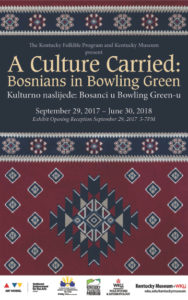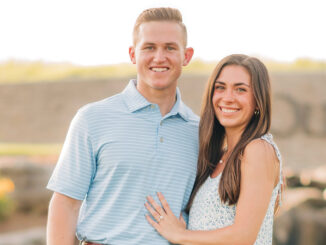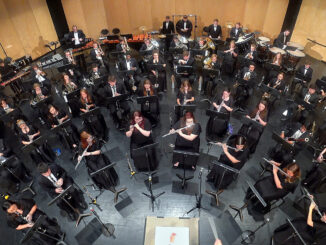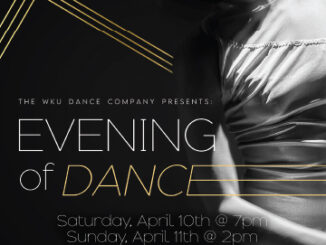
by Nicole Musgrave and Virginia Siegel
For over 25 years, the Kentucky Folklife Program (KFP) has been dedicated to the mission of documenting, presenting, and conserving the diverse traditional culture and heritage of the Commonwealth of Kentucky. Housed in the Department of Folk Studies and Anthropology at Western Kentucky University, KFP conducts fieldwork and oral history projects throughout the state and produces educational programming and events that bring citizens into contact and dialogue with tradition and folklife.
The Kentucky Folklife Program is excited to announce the September 29 opening of the exhibit A Culture Carried: Bosnians in Bowling Green at the Kentucky Museum on WKU’s campus.
For the past two years, the Kentucky Folklife Program has been collaborating with members of Bowling Green’s Bosnian American community to learn about the traditional arts and cultural practices that are significant to the Bosnian community here in Bowling Green. In partnership with the Kentucky Museum and with support from the National Endowment for the Arts, WKU’s International Programs, and BIH Express, KFP has curated a museum exhibit that explores the rich history and culture of Bowling Green’s Bosnian community.
“Based in a larger part on an ongoing oral history we have been conducting with our Bosnian neighbors, this exhibit is a way for us to share the intimate story of their journey to Bowling Green with museum visitors this year.” said Brent Björkman, Director of the Kentucky Folklife Program and Kentucky Museum. “Our staff is humbled by the way so many have let us into their lives. This project continues to be a gratifying collaboration and we are looking forward to sharing their story with those in our South-Central Kentucky community and far beyond.”
Themes for the exhibit include:
From Bosnia to Bowling Green
This first section of the exhibit provides a brief history of Bosnia and the Bosnian war, focusing in on personal narratives of wartime Bosnia and the refugee process. These personal narratives are shared through the stories of three individuals or families living in Bowling Green. For each individual/family, a display case features personal belongings that are part of their story: a suitcase carried; objects made by a teenager during the war; the personal effects of a loved one killed in the war.
Commemorating Loss
Continuing from the previous section, “Commemorating Loss” highlights two sites of conflict during the Bosnian War, Srebrenica and Sarajevo, while also sharing ways in which these sites of conflict and loss are commemorated, both in Bosnia and Bowling Green more locally. The story of a Srebrenica survivor now living in Bowling Green is also highlighted.
The Traditional Arts of Bosnians in Bowling Green
With the first two sections explaining why Bowling Green is home to a significant Bosnian American population, the next three sections highlight various aspects of Bosnian tradition and material culture as practiced in Bowling Green. This particular section focuses on the recreational activities of music, dance, and soccer, as well as the importance of the Bosnian textile tradition. This section also explores how these traditions have taken shape Bowling Green and how material culture ties this immigrant community to their roots and home far away. 
The Art of the Home
Continuing the exploration of Bosnian culture and tradition, “The Art of the Home” looks at the importance of hospitality and neighborliness in the Bosnian community. Central to this and featured in this section are the Bosnian foodways traditions that continue to flourish in Bowling Green today, from cevapi and burek to baklava and Bosnian coffee. This section also features a re-creation of a modern Bosnian American living room in South Central Kentucky, complete with furnishings and decorations.
Expressions of Faith
“Expressions of Faith” explores the religious diversity of Bosnia and the diaspora, a point of pride for many in our Bowling Green Bosnian American community. Bosnia’s three major religions are introduced (Islam, Eastern Orthodoxy, and Roman Catholicism), and prayer bead/rope traditions for each of these three religions are on display for visitors to touch. In particular, items used by members of the Bosnian American Islamic community are on display, including a prayer rug, tespih, and Quran book stand.
This exhibit is complemented by the Kentucky Museum’s mobile app, which will offer the opportunity to explore themes on a deeper level, view more pictures, and hear audio clips from oral history interviews. At various points throughout the exhibit, iPads are available to view mobile content, so do not worry if you do not have a smartphone with you.
Monthly programming will be scheduled to further explore themes in this exhibit, the schedule to be announced. Keep an eye on the Kentucky Folklife Program and Kentucky Museum websites and social media accounts for more information as the programming schedule is developed (www.kentuckyfolklife.org; www.wku.edu/kentuckymuseum)
The exhibit will run from September 29, 2017, through June 30, 2018. The opening reception will be held at the Kentucky Museum from 5 to 7 p.m. on September 29, 2017.
More about the Bowling Green Bosnia Oral History Project
In the fall of 2015, with support from the WKU Institute for Citizenship and Social Responsibility (now WKU’s Center for Citizenship & Social Justice), the Kentucky Folklife Program began the Bowling Green Bosnian Oral History Project in collaboration with members of Bowling Green’s Bosnian community and faculty from the Department of Folk Studies & Anthropology. This ongoing project documents the stories of Bowling Green’s Bosnian community.
If you’d like to contribute an oral history to this project, please feel welcome to contact us 270-745-4133 or kyfolklife@wku.edu.
For more information on this and other upcoming events please visit one of these links.



